Conductive Hearing Loss
Conductive Hearing Loss occurs when sound waves are blocked or reduced from reaching the inner ear. This type of hearing loss affects the outer or middle ear and can often be treated medically or surgically, making it one of the most manageable hearing conditions.
At Phonics Hearing Care Clinic, we specialise in diagnosing and treating all degrees of conductive hearing loss to help you hear better and live more comfortably.

What is Conductive Hearing Loss?


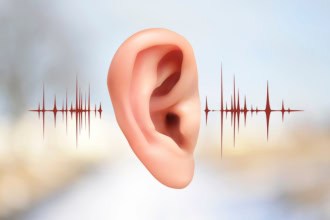
Conductive Hearing Loss meaning refers to a hearing impairment that happens due to a blockage or damage in the outer or middle ear, preventing sound from passing efficiently to the inner ear. It can be temporary or permanent, depending on the underlying cause.
This type of hearing loss can occur in one ear or both, and it ranges from mild conductive hearing loss to moderate conductive hearing loss, or even bilateral conductive hearing loss if both ears are affected.
Conductive Hearing Loss Causes
Several conditions can lead to conductive hearing loss, including
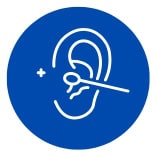
Earwax (cerumen) blockage
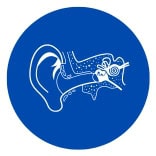
Fluid buildup in the middle ear (often from infections)
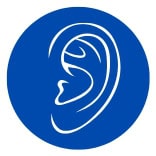
Perforated eardrum
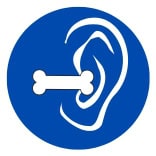
Otosclerosis (abnormal bone growth in the middle ear)

Otosclerosis (abnormal bone growth in the middle ear)
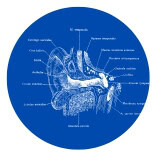
Malformation of the ear structures
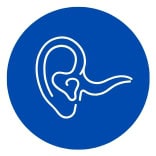
Foreign objects lodged in the ear canal
Conductive Hearing Loss Symptoms
Symptoms of conductive hearing loss can vary based on the cause and severity. Common signs include
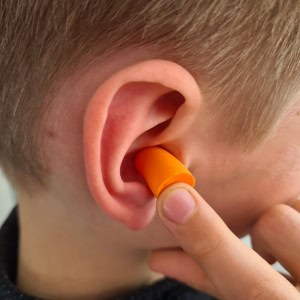
Muffled or soft sound perception

A feeling of fullness or pressure in the ears
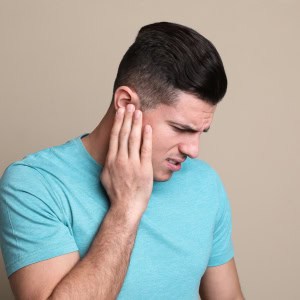
Ear pain or discomfort
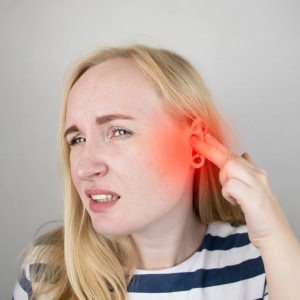
Fluid drainage from the ear
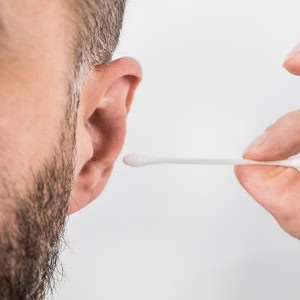
Fluid drainage from the ear
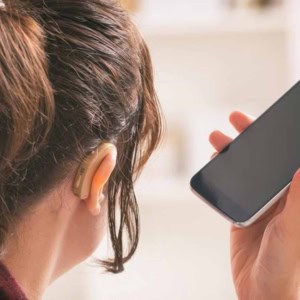
Trouble hearing on the phone or in noisy environments
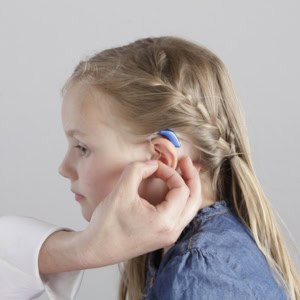
Hearing better in one ear than the other
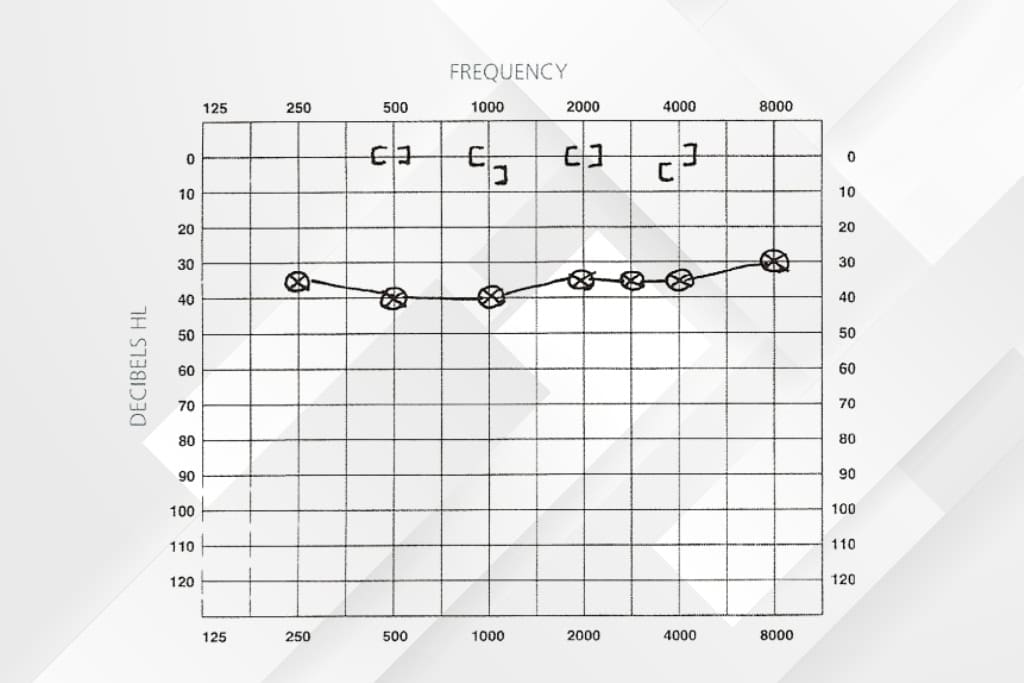
Conductive Hearing Loss Audiogram

An audiogram helps in diagnosing conductive hearing loss by evaluating how well you hear different frequencies and tones. A key indicator is the air-bone gap, which shows that sound is not efficiently reaching the inner ear, despite the bone conduction pathway being normal.
The audiogram can also determine if the hearing loss is mild, moderate, or bilateral, helping audiologists create a personalised care plan.
Mild & Moderate Conductive Hearing Loss
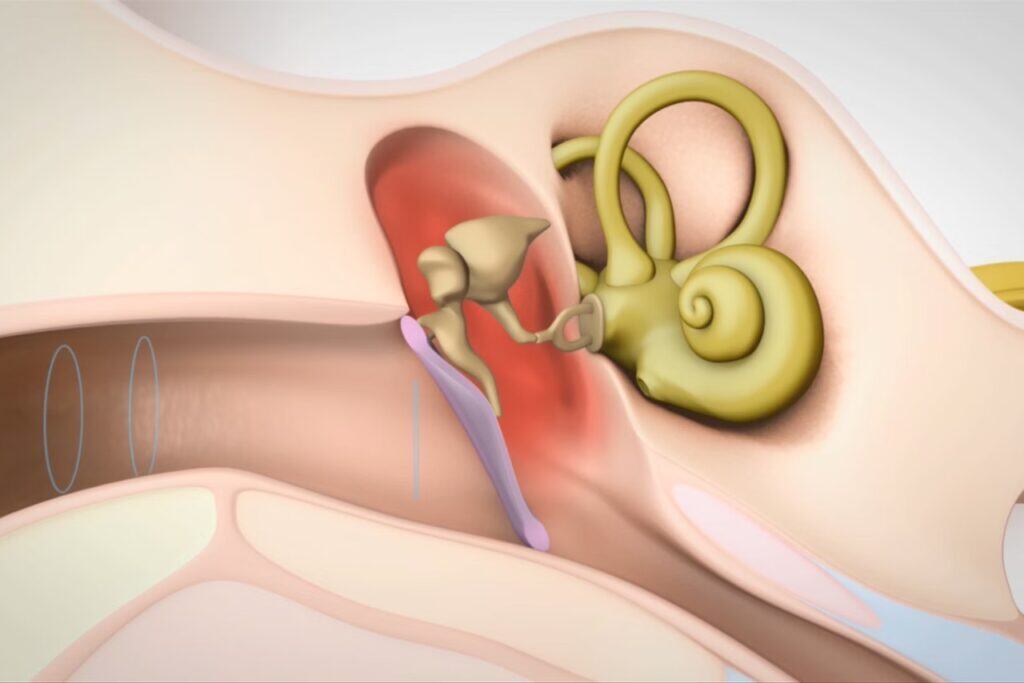
Mild Conductive Hearing Loss: Difficulty hearing faint or distant sounds, especially in noisy settings.
Moderate Conductive Hearing Loss: Noticeable hearing challenges in daily communication, often needing hearing assistance devices or medical intervention.
Both types are treatable, and early diagnosis can improve hearing outcomes.

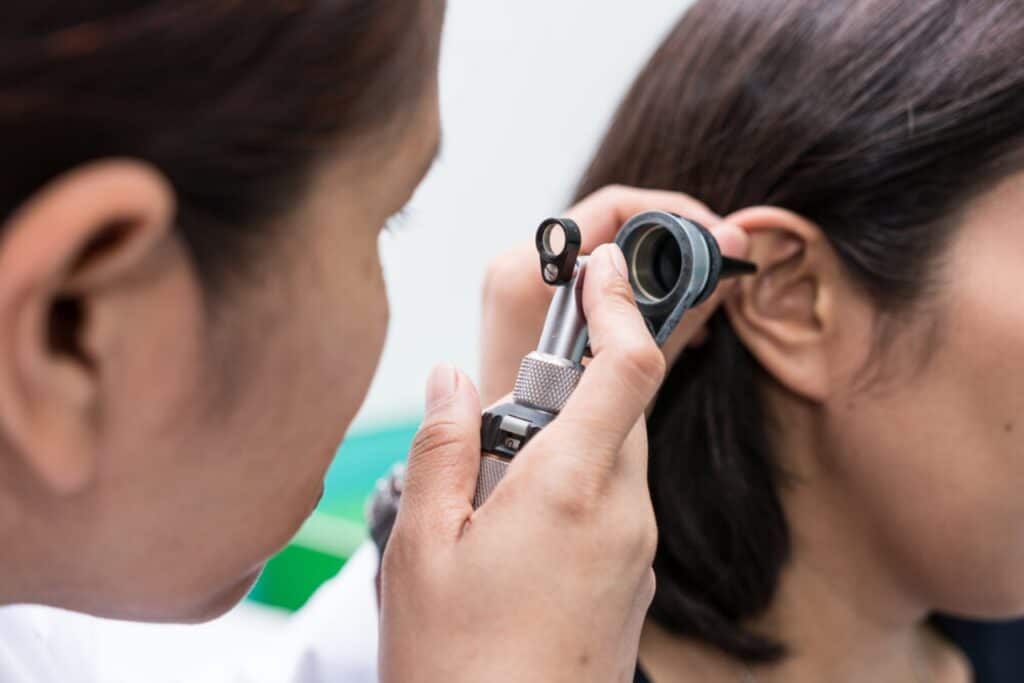
Conductive Hearing Loss Treatment

The best conductive hearing loss treatment depends on the cause
Medical Treatment: Antibiotics for infections, earwax removal, or addressing allergies
Hearing Aids: Bone-conduction hearing aids or air-conduction aids, depending on the condition
At Phonics Hearing Care Clinic, we offer expert diagnostics and personalised treatments to restore your hearing effectively.
Book a Free Hearing Test Today
If you’re facing symptoms of conductive hearing loss, don’t wait. Book a free hearing consultation with our certified audiologists and take the first step toward better hearing. We provide comprehensive testing, hearing aid fitting, and long-term care at all Phonics Hearing Care Clinic clinics across India.
Frequently Asked
Questions
Conductive hearing loss occurs when sound cannot efficiently pass through the outer or middle ear to the inner ear.
The symptoms of conductive hearing loss include muffled hearing, a feeling of fullness in the ear, and difficulty hearing soft sounds.
Conductive hearing loss can be temporary or permanent, depending on the underlying cause.
Yes, hearing aids can amplify sound and are often effective for managing conductive hearing loss. You can find an ideal hearing device to deal conductive hearing loss at the Phonics Hearing Care Clinic hearing aid clinic.
Conductive hearing loss affects the outer or middle ear, while sensorineural involves damage to the inner ear or auditory nerve.
You can visit Phonics Hearing Care Clinic to meet a certified audiologist who can help you find the right solution to deal with conductive hearing loss.
